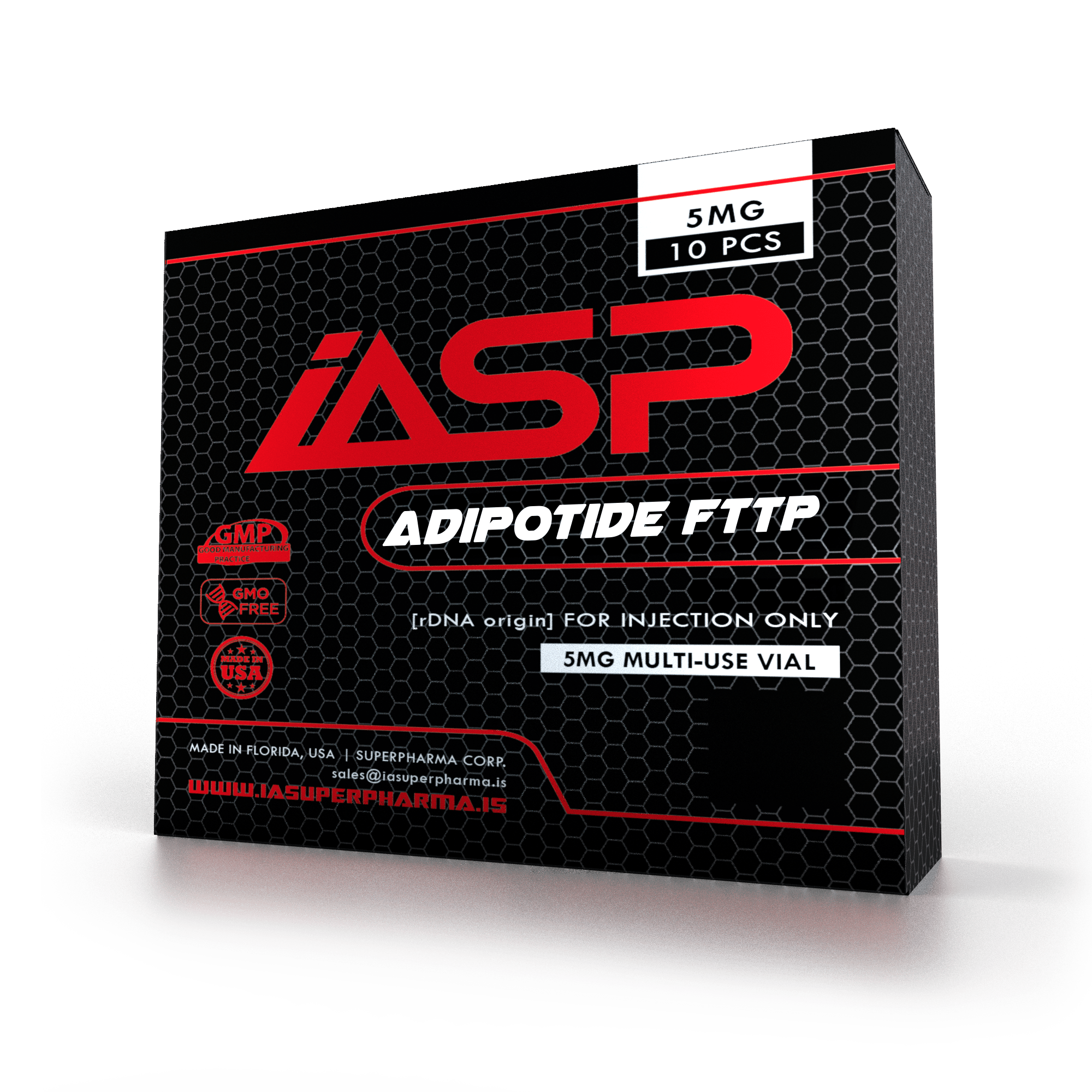This product is a box of 10 vials.
What is Adipotide?
Adipotide (also called FTPP or proapoptotic peptide) simply kills fat cells by focusing on the blood vessels that supply them. Remarkably, adipotide can tell apart the blood vessels in fat cells from those in the rest of the body, making it very precise. Studies in monkeys reveal that adipotide not only leads to weight loss but also improves insulin sensitivity and counters some effects of type 2 diabetes.
Sequence: Cys-Lys-Gly-Gly-Arg-Ala-Lys-Asp-Cys—Gly-Gly--(Lys-Leu-Ala-Lys-Leu-Ala-Lys)2
Molecular Formula: C152H252N44O42
Molecular Weight: 2611.41 g/mol
PubChem CID: 163360068
Fat Loss
Adipotide was created and entered phase I clinical trials in 2011 to test its power to destroy fat cells. Experiments in rhesus monkeys showed that adipotide triggers targeted cell death in the blood vessels of white adipose tissue (fat). Without blood flow, the fat cells died off. This led to quick weight loss, a fast drop in body mass index (BMI), and better insulin resistance traits. Notably, adipotide treatment and the resulting fat loss not only helped with weight but also shifted eating habits. Monkeys that slimmed down with adipotide ate less food overall.
Adipotide's focus on blood vessels for fat cells might involve a protein receptor named prohibitin. This membrane protein could be unique to blood vessels in white fat and in cancer cells. Research has shown that adipotide links up with this protein. If prohibitin turns out to be limited to fat vessels and cancer tissue, adipotide studies could highlight a fat-specific target useful for both treatment and diagnosis.
Cancer
Prohibitin, the likely target of adipotide in fat cells, connects to some cancer types. Cancer cells need heavy blood supplies to expand and spread. Targeting prohibitin in those cells could lead to advanced therapies that hit cancer without damaging nearby healthy tissues.
Glucose Tolerance
Glucose tolerance describes higher-than-normal blood sugar levels. Doctors often spot it with a blood test and confirm through fasting glucose checks or a glucose tolerance test, where someone drinks a set amount of sugar and then gets blood sugar measured. It serves as an early sign of diabetes, with rising tolerance pointing toward the disease.
Managing high glucose can involve diet and exercise, but these take commitment and time to work. Most people with poor glucose tolerance end up with full type 2 diabetes and need medications like metformin or sometimes insulin. Adipotide research has uncovered that the peptide brings fast, weight-independent gains in glucose tolerance. That last detail matters because it shows reducing white fat via adipotide lowers glucose tolerance even without weight changes. Essentially, the fat reduction itself counts most, not the pounds lost. These insights pave the way for new pre-diabetes and diabetes treatments while shedding light on how diabetes starts.
Debate exists over whether adipotide directly cuts fat or just curbs appetite, leading to indirect fat loss. Evidence leans toward direct fat reduction, backed by the peptide's impact on fat cell density without weight shifts and on glucose tolerance without weight loss.
Curious about Adipotide FTTP?
Join our Facebook group to engage directly with thousands of others who use this product, and follow our Facebook/IG pages for hot updates and product announcements!


